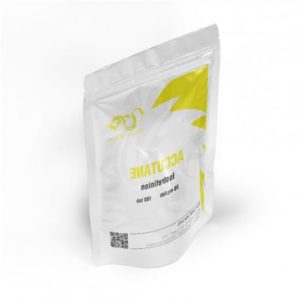Isotretinion
Isotretinoin is a medication primarily used to treat severe acne. It is a derivative of vitamin A and is sold under several brand names, including Accutane, Roaccutane, and Claravis. While it is a highly effective treatment for acne, isotretinoin is also associated with a number of potential side effects and risks.
Isotretinoin works by reducing the amount of oil produced by the skin’s oil glands. This helps to prevent pores from becoming clogged and inflamed, which is a primary cause of acne. It also helps to reduce inflammation in the skin, which can further improve the appearance of acne.
Isotretinoin is typically prescribed for people with severe acne that has not responded to other treatments. It is usually taken orally in the form of capsules or tablets, and treatment can last anywhere from several weeks to several months.
While isotretinoin is highly effective at treating acne, it is also associated with a number of potential side effects. These can include dryness and peeling of the skin, as well as dryness of the eyes, nose, and mouth. Some people may also experience joint pain, headaches, or mood changes while taking isotretinoin.
There are also some more serious potential side effects of isotretinoin. These can include an increased risk of depression and suicide, as well as an increased risk of birth defects if taken by pregnant women. For this reason, isotretinoin is typically only prescribed after other acne treatments have failed and only under the close supervision of a healthcare provider.
Because of the potential risks associated with isotretinoin, it is important for people taking this medication to be closely monitored by their healthcare provider. This may include regular blood tests to monitor liver function, as well as regular check-ins to assess any potential side effects.
Overall, isotretinoin is a highly effective treatment for severe acne. However, it is important to weigh the potential benefits against the potential risks and to only use this medication under the close supervision of a healthcare provider. With careful monitoring and management, isotretinoin can be a safe and effective way to manage severe acne and improve the appearance and health of the skin.
Showing the single result
